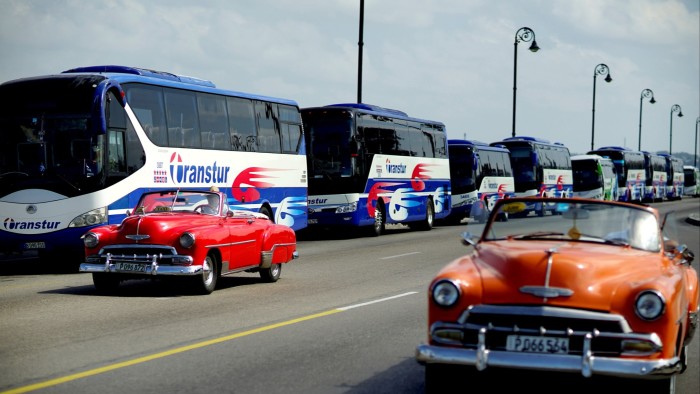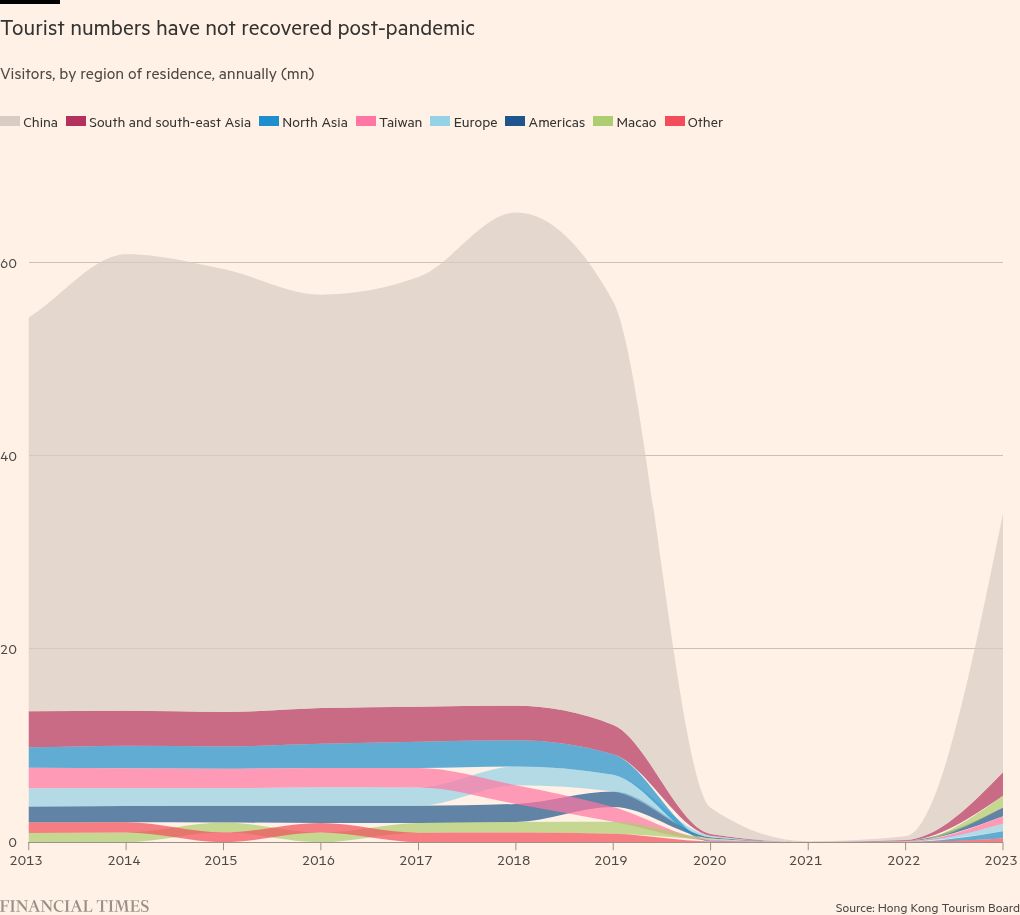
This article is an on-site version of our FirstFT newsletter. Subscribers can sign up to our Asia, Europe/Africa or Americas edition to receive the newsletter every weekday. Explore all of our newsletters here
In today’s newsletter:
-
How Pakistan’s security services pressured utilities over a power deal
-
China and Cuba’s weakening ties
-
Hong Kong’s struggling economy — in charts
Good morning. Last week, Pakistan’s power ministry announced that five local utility companies had agreed to end expensive electricity supply contracts with the government early.
But according to people familiar with the talks, Pakistan’s powerful security services used heavy pressure to coerce the independent producers to terminate the contracts.
Pakistan’s power ministry has said agreements that were announced on Thursday to end the contracts will save the cash-strapped government Rs411bn ($1.48bn) and help it cut electricity prices for households and businesses.
Prime Minister Shehbaz Sharif’s office said the power companies had “voluntarily agreed” to terminate their contracts. But energy sector businesspeople said the agreement with the five publicly listed “independent power producers” followed “coercion and threats” from security services.
One military officer told an energy executive in a text message seen by the FT: “We will go to any measure even beyond our imaginations to get the issue settled. Time has come to give a final blow to such IPPs.” Pakistan correspondent Humza Jilani has more details.
Here’s what else I’m keeping tabs on today:
-
Economic data: India reports September inflation data and China publishes trade balance figures for the month and Singapore reports advance third-quarter GDP estimates.
-
Singapore monetary policy decision: The Asian financial hub is widely expected to keep policy unchanged amid lingering inflation risks. (Reuters)
-
Japan: Financial markets are closed for Health and Sports Day.
-
New Nike CEO: Elliott Hill becomes the new boss of the sneaker giant as it tries to lift itself out of a sales slump.
Five more top stories
1. China’s deflationary pressures picked up in September with weaker than expected consumer and factory prices. The softer data comes as China’s volatile markets await more detailed information on Beijing’s stimulus plans, after a Ministry of Finance press conference on Saturday that pledged more spending but gave few new figures.
-
China’s fastest-growing social media app: Revenues at Xiaohongshu, also known as China’s answer to Instagram, surged to $1bn in the first quarter of 2024.
2. The US is sending an advanced anti-missile system to Israel and 100 troops to operate it in a rare move that will boost its ally’s defences as Benjamin Netanyahu’s government plans retaliatory strikes against Iran. Here’s what to know about the THAAD anti-missile system that Washington is sending to Israel.
-
Middle East news: The UN accused Israel of a “flagrant violation” of international law yesterday after Israeli tanks broke into a position stationed by peacekeepers in southern Lebanon, hours before Benjamin Netanyahu told international forces to withdraw from combat areas.
3. India’s powerful copycat pharmaceutical industry is set to roll out generic weight-loss drugs in the UK within weeks, with one leading producer forecasting a “huge price war”. Bengaluru-based Biocon is the first company to win UK authorisation to offer a generic version of Novo Nordisk’s Saxenda weight treatment and is ready to launch sales by November.
4. Elon Musk’s SpaceX accomplished a momentous technical feat yesterday by catching a booster rocket with mechanical arms on its return from a test flight. Watch the incredible footage of launch pad’s “chopsticks” catching the booster.
5. European carmakers are planning dozens of affordable electric models next year as they brace for an “EV winter” driven by tough new EU carbon emission targets and fierce competition from China. Read more about the pressure on the industry ahead of this week’s Paris Motor Show.
News in-depth

Beijing describes Cuba, the only communist nation in the Americas, as a “good brother, good comrade, good friend”. But despite their shared political legacy, the island’s economic collapse has hurt commercial ties with China just as Beijing’s strategic rivalry intensifies with Cuba’s arch-enemy, the US. “China is not Cuba’s sugar daddy,” said Fulton Armstrong, former US national intelligence officer for Latin America. “It’s mostly a relationship of solidarity statements.
We’re also reading . . .
Chart of the day
Hong Kong’s economy is still struggling to regain momentum, according to an FT analysis of the latest data. The Asian financial hub has been hampered by slowing growth in China, higher US interest rates and a fall in tourist numbers.

Take a break from the news
A collection of photographs offers a peek into the lavish London homes of the 19th and early 20th century.
